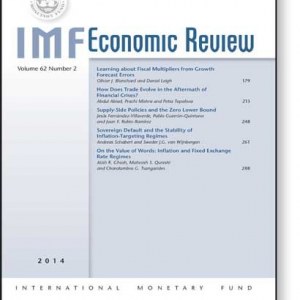
\Van Den Bremer\, \TonS.\ and \Van Der Ploeg\, F. (2013). Managing and harnessing volatile oil windfalls IMF Economic Review, 61(1):130--167.
-
Affiliated authors
-
Publication year2013
-
JournalIMF Economic Review
Three funds are necessary to manage an oil windfall: intergenerational, liquidity, and investment funds. The optimal liquidity fund is bigger if the windfall lasts longer and oil price volatility, prudence, and the GDP share of oil rents are high and productivity growth is low. The paper applies the authors' theory to the windfalls of Norway, Iraq, and Ghana. The optimal size of Ghana's liquidity fund is tiny even with high prudence. Norway's liquidity fund is bigger than Ghana's. Iraq's liquidity fund is colossal relative to its intergenerational fund. Only with capital scarcity, part of the windfall should be used for investing to invest. The paper illustrates how this can speed up the process of development in Ghana despite domestic absorption constraints.